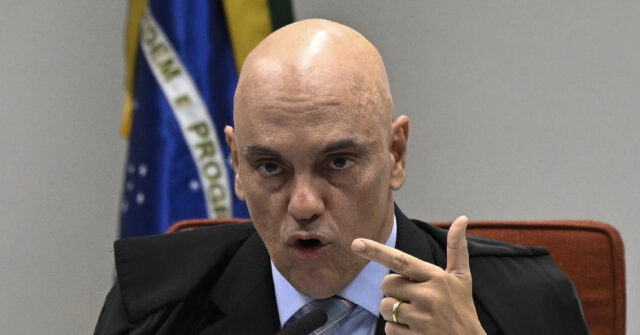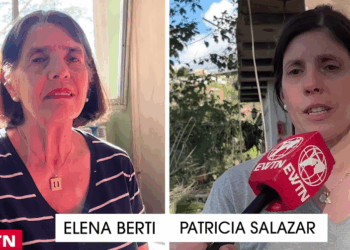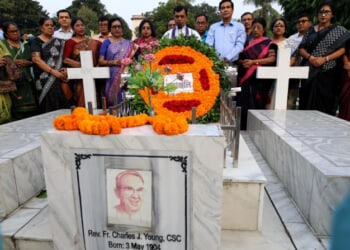Brazilian Supreme Federal Tribunal (STF) Justice Alexandre de Moraes on Sunday demanded the preservation of all documentation and material evidence pertaining to “Operation Containment,” the massive security operation in Rio de Janeiro against the deadly Comando Vermelho (“Red Command”) drug-trafficking gang.
The ruling stems from a request issued by the Federal Public Defender’s Office (DPU) amid complaints of alleged non-compliance with the terms of a Brazilian socialist party-promoted 2019 lawsuit limiting lethal police action in Rio favelas.
Last week, some 2,500 officials from Rio’s civil and military law enforcement agencies conducted “Operation Containment,” a massive security operation in the Complexo do Alemão and Penha favelas against Red Command, one of Brazil’s most dangerous gangs, to curb the gang’s territorial expansion plans in the two northern Rio favelas.
Red Command responded to the security operation with an intense, war-like battle against Rio law enforcement, placing burning barricades and using drones to launch bombs at officers. “Operation Containment,” authorized by Rio de Janeiro governor Cláudio Castro, is widely described as the most lethal security operation in the country’s history and concluded with a death toll of at least 121 people, including four law enforcement officials.
The operation also concluded with the arrest of 113 individuals and the detention of ten teenagers. Law enforcement seized 118 firearms, including 91 rifles, as well as an undetermined amount of drugs and ammunition that is reportedly “still being counted” according to Sunday evening reports.
On Sunday, STF Justice de Moraes demanded the preservation and “rigorous and comprehensive” documentation of all material elements related to the security operation in Rio, including forensic evidence and respective chains of custody. The Brazilian top court explained in a Monday morning press note that de Moraes’ decision responds to a request from the Public Defender’s Office that, according to the STF, “aims to ensure control and investigation” by the Public Prosecutor’s office of the operation.
The Brazilian state-owned Agência Brasil reported on Monday morning that de Moraes issued the order within the framework of a lawsuit commonly referred to as the “ADPF of the Favelas,” originally filed in 2019 by the Brazilian Socialist Party (PSB) against “police violence in operations in Rio de Janeiro communities.” The lawsuit reportedly seeks to “establish guidelines to reduce police lethality.”
“The measure was taken in the proceedings of the Fundamental Precept Noncompliance Action (ADPF) 635. The minister [de Moraes] emphasized that the determination follows what was established by the STF Plenary in the judgment of the merits of the case, according to which traces of crimes must be preserved and the technical independence of expert reports in investigations of crimes against life must be ensured,” the STF’s press note read.
“The governor of the State of Rio de Janeiro is expected to be summoned today to ensure compliance with the decision,” the note continued.
Alexandre de Moraes is widely known for leading a pervasive, years-long political persecution campaign against conservative former President Jair Bolsonaro, his family, and other conservative voices in Brazil. De Moraes’ extensive list of actions against Bolsonaro include, but are not limited to, the censorship of his presidential campaign, police raids draconian house arrest orders, and several ongoing indictment processes.
In September, de Moraes voted alongside other STF Justices to convict Bolsonaro and sentence him to 27 years and 3 months in prison for “crimes against democracy.” According to the top court, Bolsonaro allegedly conspired with others to stage a “coup” and overturn the results of the October 2022 presidential election, which a then-incumbent Bolsonaro narrowly lost against current leftist President Luiz Inácio Lula da Silva.
President Donald Trump cited the political persecution of Bolsonaro led by de Moraes in a July executive order identifying Brazil as a national security threat. At the time, the United States imposed sanctions on de Moraes under the Global Magnitsky Act.
According to the left-wing Brazilian newspaper Folha de Sao Paulo, the “ADPF of the Favelas” was reviewed by the STF in April. The case was brought to trial after the Justices “met behind the scenes and decided on a joint vote.” The Brazilian top court reportedly declared that there is “an unconstitutional state of affairs in Rio’s public security.”
“As a solution, the court defined procedures that must be followed by the state government in the event of police operations that result in deaths,” Folha reported.
STF Justice Edson Fachin reportedly served as the original rapporteur of the socialist party’s favela lawsuit when it was filed in 2019. Fachin assumed the STF Presidency in September, leading to STF Justice Luís Roberto Barroso taking over charge of the case. Barrosso retired from his position at the top court in October and his seat remains vacant at press time. In light of Barroso’s retirement, Folha detailed, the most senior justice assumes the role of rapporteur — in this case, de Moraes.
De Moraes is reportedly expected to travel to Rio de Janeiro on Monday morning to meet with Governor Cláudio Castro near noon (local time) so that the governor can provide information to the STF Justice about last week’s security operation. De Moraes will also hold meetings with other local Rio authorities throughout the afternoon. In his Sunday ruling, de Moraes called for a joint hearing November 5 between the STF and representatives from nearly 20 Brazilian human rights organizations.
G1 reported on Sunday night that hours before Castro’s encounter with de Moraes, the government of Rio de Janeiro shared drone and body camera footage taken on the day of the security operation with the outlet, showcasing some of the clashes between Rio law enforcement and Red Command. According to CNN Brasil, Rio’s governor’s office also disclosed a detailed list of 115 criminals killed during the operation — 97 of whom reportedly have some form of criminal record.
Governor Cláudio Castro has made repeated calls to Brazilian federal authorities for the designation of Red Command as a terrorist organization, deeming the group’s actions as “narco-terrorism,” a classification that Justice Minister Ricardo Lewandowski claimed “does not apply” to the criminal organization during a press conference with governor Castro on Thursday.
On Saturday, Governor Castro repeated his calls in a social media post detailing that neighboring countries have either outright declared Red Command a terrorist group, have reinforced their borders, or have designated groups within their respective countries as terrorist organizations.
“This week’s discussion goes far beyond public safety in Rio de Janeiro. What we are facing is an international problem,” Governor Castro wrote. “Argentina and Paraguay have already classified Red Command as a terrorist group. And it is no coincidence.”
“The whole world sees the Red Command as a narco-terrorist organization that uses violence, fear, and territorial domination to impose its power,” he continued in a follow-up post. “The domination of communities is a direct affront to democracy and the rule of law. No police force in the world faces terrorists alone.”
In a third post, Castro asserted that it is time for Brazil to “face reality” and declare Red Command a terrorist group, stressing that “while some insist on treating them as victims of society, we will continue to call them what they are: narco-terrorists.”
Red Command started in a Rio prison in the 1970s through an alliance between criminals and leftist militants. The gang initially started as a “self-protection” group for prisoners, engaging in low-level crimes, evolving over time to a full-fledged transnational syndicate whose alleged criminal actions include drug and arms trafficking, murder, money laundering, assault, and rioting, among other crimes.


















